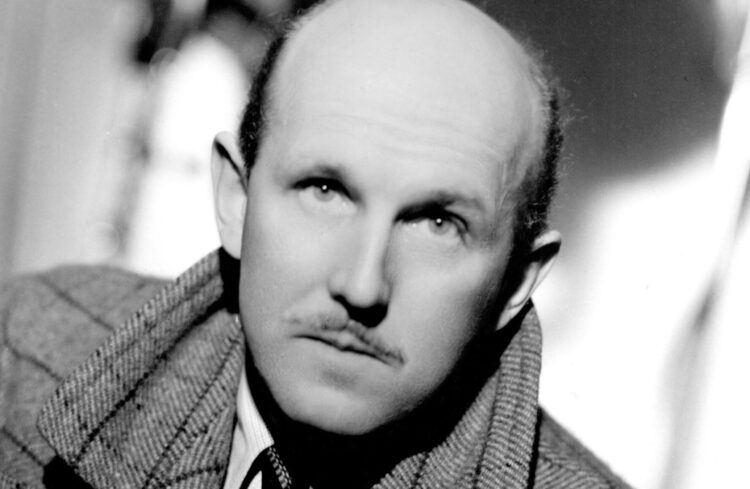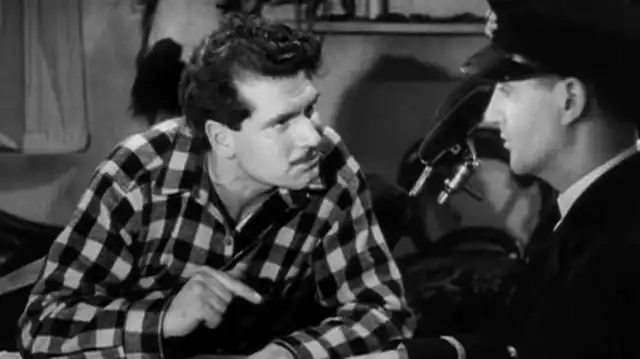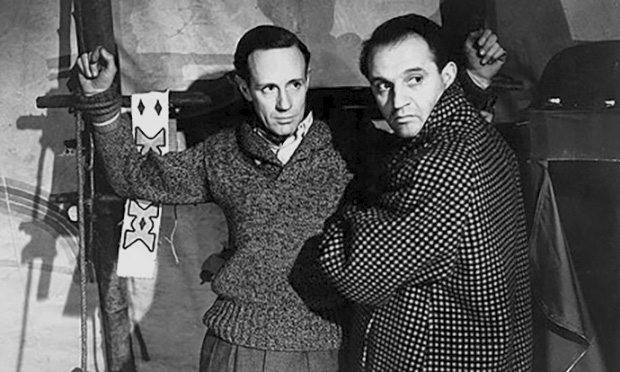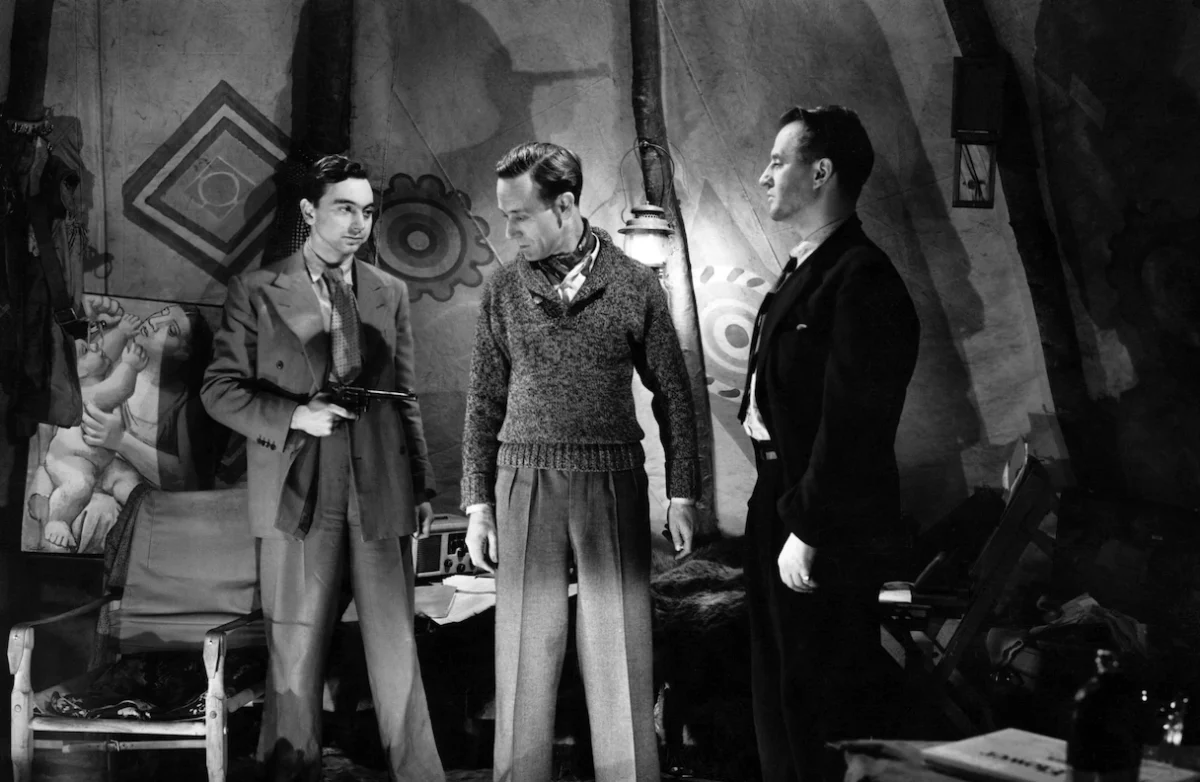At the beginning of World War II, the Ministry of Propaganda in Britain asked the movie director Michael Powell whether he would be interested in making a documentary about minesweepers. He offered a counter-proposal — a feature film that might inspire the United States to abandon its neutrality policy and enter the war against Nazi Germany.
Ministry officials took him up on his offer, and Powell proceeded to enlist Hungarian Jewish refugee Emeric Pressburger as the screenwriter of what would be 49th Parallel.
The motion picture, slightly over two hours in length, was recently broadcast on the Turner Classic Movies channel.
As it was shot on location in Canada in early 1941, the Allies were losing ground. Germany, at Dunkirk, had driven the British army out of France. Its ally, Japan, had conquered Vietnam, Laos and Cambodia.

British Prime Minister Winston Churchill pleaded with U.S. President Franklin Roosevelt to join the war effort, but Roosevelt would have none of it.
49th Parallel, starring a cast of British, Austrian and Canadian actors, was released in Britain toward the close of 1941, around the time the Japanese Air Force bombed the U.S. Pacific fleet at Pearl Harbor and the United States declared war on Japan. In response, Germany declared war on the United States, which joined the Allied coalition. But by that point, the film had lost its value as vehicle to induce Roosevelt to participate in the war.
Under the title of The Invaders, it opened in the U.S. in mid-April 1942 to rave reviews and good box office receipts.
49th Parallel, a reference to Canada’s undefended border with the United States, is dedicated to Canada and Canadians who assisted in its production. The cinematographer, Freddie Young, went on to shoot Dr. Zhivago, and the editor, David Lean, would direct Lawrence of Arabia. The musical score was composed by Ralph Vaughan Williams, the eminent British composer.
The plot, intended to discredit Nazi Germany and induce sympathy for the Allied cause, revolves around six German sailors who try to make their way into the United States from Canada after their submarine is blown to bits in Hudson Bay by the Royal Canadian Air Force.
This war thriller opens with panoramic vistas of Canada and then zeroes in on a German U-boat navigating the grey waters of the Gulf of St. Lawrence. After the Germans sink a freighter carrying oil to Britain, they head for Hudson Bay. A landing party of six German men, headed by the haughty officer Hirth (Eric Portman), are instructed to bring back food and fuel from a nearby Canadian outpost. As an announcer states, they are the first hostile German force to set foot on Canadian soil and are the harbingers of Germany’s conquest of Canada.
The six sailors, having witnessed the destruction of their submarine, meet a French Canadian fur trapper named Johnnie (Laurence Olivier) at the outpost. A jovial fellow, he’s unaware that a war has broken out and cannot understand why Britain and France risked hostilities with Germany over its invasion of Poland.
Johnnie’s attitude reflects Quebec’s insular anti-war position. Yet Johnnie is hardly pro-German, saying Germany will get a “good licking.” Olivier, badly mimicking a French Canadian accent, turns in a theatrical performance.

Hirth, a fanatical Nazi, is contemptuous of the local Inuit people, describing them as “sub-apes like Negroes, only one step above the Jews.” Interestingly, this line was deleted from the U.S. version of the film as a sop to southern segregationists.
As Hirth continues to harangue Johnnie with his half-baked theories, he assures him that French Canada will be free after the war and hands him a copy of Adolf Hitler’s memoir, Mein Kampf. Johnnie is less than impressed by Hirth’s rhetoric, countering that French Canadians are, in fact, free as citizens of Canada.
Having made their presence felt in this remote and freezing corner of Canada, the Germans hijack a float plane. An Inuit marksman fires at it, killing one of the passengers. The aircraft crash lands on a lake in Manitoba, and another sailor dies, leaving four Germans still on the run determined to make it into neutral ground in the United States.
Stumbling upon a German Hutterite farm, they encounter Anna (Glynis Johns), a blonde milk maid of Aryan appearance. She leads them to Peter (Anton Walbrook), the leader of the settlement.
Hirth gives the Hutterites a lecture on the emerging “new order” in Europe and promises them prosperity and happiness after Germany’s triumph. He pays homage to Hitler, “our glorious leader,” but the Hutterites remain conspicuously silent.
Peter, in an impassioned retort, says they have found security, peace and tolerance in Canada, qualities that are sorely missing in Nazi-occupied Europe these days. He adds that racial hatred goes against their beliefs as Christians, and that Nazism is a “microbe” of a “filthy disease.” And in a further rebuff of Nazi ideology, he shouts, “No, we are not your brothers!”
Taking her cue from Peter, Anna dismisses Hitler as the anti-Christ.
Vogel (Niall MacGinnis), the only sympathetic member of the Nazi band, is invited by Peter to become a member of the farmstead. He arouses Hirth’s animus, much to his detriment.
After arriving in Winnipeg, the Germans continue their journey to Vancouver, where they intend to board a Japanese ship for home. As they pass through Banff National Park, the camera pans on a stereotypical Canadian image — a procession on finely-feathered Indians on horseback.
The RCMP is on to the invaders, but two of the Germans escape into the woods and cross paths with Philip Armstrong Scott (Leslie Howard), a British authority on North American Indians who offers them hospitality. “The war seems so remote here,” he says. “You can’t take it seriously.”

Hirth and his companion behave badly, prompting Scott to denounce their arrogance and stupidity. (Tragically, Howard — a Jewish actor whose birth surname was Steiner — died in 1943 when the Germans shot down the airplane he was on).
Hirth, the last German survivor, reaches Niagara Falls by hitching a ride on a train. There, in a boxcar, he meets Andy Brock (Raymond Massey, the brother of Canada’s ambassador to Britain and Canada’s future governor-general). Brock is a soldier, but he acts like a hobo. Still, he’s a red-blooded patriot, saying he enlisted in the army to “knock the hell out of the Nazis.”
Hirth, in an unguarded moment, reveals his identity and spouts a boilerplate Nazi phrase about the “glorious ties of blood and race.” Brock, in short order, takes care of him.
The film paints an unflattering picture of Nazis and Nazism and was thus an effective tool in the Allies’ propaganda battle against Hitler’s Germany. In terms of sheer entertainment value, it is equally successful, making 49th Parallel a real pleasure to watch.
